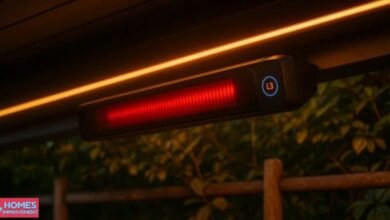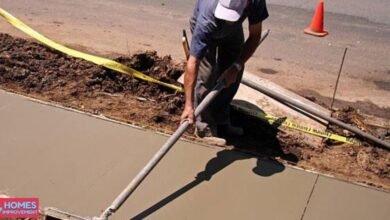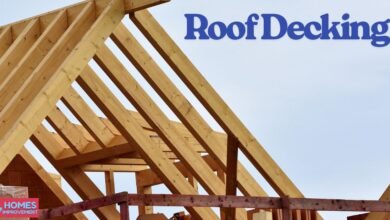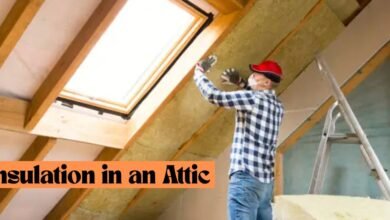Garage Door Insulation: Best DIY and Professional Options in 2025
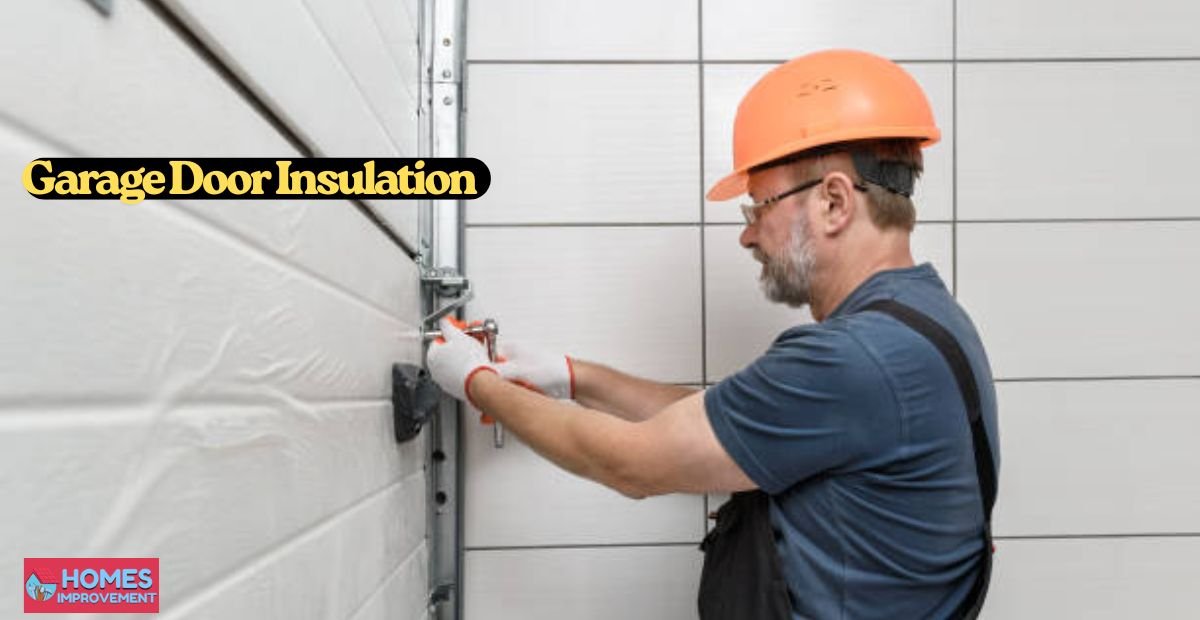
Garage Door Insulation is a smart upgrade in 2025 for homeowners looking to boost energy efficiency and indoor comfort. With rising utility costs, insulating your garage door can help maintain stable temperatures year-round. It also reduces noise and adds value to your home. From easy DIY kits to advanced professional options, solutions are available for every budget. Choosing the right Garage Door Insulation depends on your climate, garage usage, and installation preference. This guide covers the best methods to insulate your garage door effectively in 2025.
Garage Door Insulation Best DIY and Professional Options in 2025
Garage Door Insulation is gaining popularity in 2025 as homeowners look for ways to cut energy costs and improve comfort. It helps regulate your garage’s temperature, keeping it cooler in summer and warmer in winter. Proper insulation also reduces outside noise and protects stored items from extreme weather. Whether your garage is attached or separate, insulation adds real value to your home.
DIY Garage Door Insulation kits are budget-friendly and simple to install, while professional options offer higher efficiency and durability. The right choice depends on your needs, budget, and how hands-on you want to be.
Why Garage Door Insulation Matters More Than Ever
In 2025, energy prices are rising globally, making insulation an essential investment for your home. A non-insulated garage can significantly affect indoor temperatures, especially if it’s attached to your house. Cold or hot air seeps in, forcing your HVAC system to work harder and increasing utility costs. Garage door insulation blocks this energy loss, providing thermal resistance that maintains a stable environment. It also reduces noise pollution and improves door durability by minimizing metal expansion and contraction. Many homeowners overlook garage insulation, but it’s now seen as a smart move for increasing property value and reducing long-term maintenance costs.
Top Benefits of Insulating Your Garage Door
Insulating your garage door in 2025 offers more than just temperature control it transforms your garage into a more usable and energy-efficient space. Whether you’re storing valuables, working out, or simply parking your car, a properly insulated door enhances comfort year-round. Garage Door Insulation also helps reduce your energy bills, blocks outside noise, and even adds to your home’s resale value. It’s a small upgrade with long-term impact, especially in regions with extreme weather conditions.
Key Benefits of Garage Door Insulation
- Improves energy efficiency and reduces heating and cooling costs
- Creates a more comfortable indoor environment in all seasons
- Reduces outside noise, ideal for homes in busy areas
- Extends the lifespan of your garage door by reducing temperature-related wear
- Protects stored items from heat, cold, and humidity
- Increases overall property value and appeal
- Helps maintain consistent indoor temperatures if garage is attached to your home
Best DIY Garage Door Insulation Methods
DIY Garage Door Insulation is a practical solution for homeowners looking to improve comfort without spending a lot. Popular materials include foam board, reflective foil, and fiberglass kits each offering unique benefits. Foam board is lightweight, easy to cut, and provides excellent thermal resistance. Reflective foil works best in hot climates by deflecting radiant heat, while fiberglass offers solid insulation for colder regions. Always clean and measure the garage door panels accurately before installation for best results.
Many kits come with pre-cut panels and adhesive tape, making the process simple even for beginners. With a little effort, DIY insulation can noticeably reduce energy bills and outside noise. It’s an affordable upgrade with long-term advantages.
Professional Insulation Options and When to Choose Them
If your garage has complex structural features or you’re aiming for maximum performance, hiring a professional is your best bet. Professionals offer advanced materials like polyurethane spray foam, which expands into every gap, providing airtight insulation. They also ensure precise R-value calculations for your climate zone and proper sealing around edges and joints. Although more expensive, professional garage door insulation offers longer-lasting results and often includes warranties. It’s also a great choice for older garage doors that may need structural adjustments. Choose this route if you want the job done quickly, safely, and with optimal energy efficiency.
Comparing Costs DIY vs. Professional Installation
When planning your Garage Door Insulation project, cost is a major factor. DIY insulation is budget-friendly, usually costing less than $150 for most standard doors. It’s ideal for those comfortable with tools and basic installation. On the other hand, professional insulation offers better sealing and material quality but comes at a higher price ranging between $300 to $700 depending on door size and material type.
Cost Comparison Table: DIY vs. Professional Garage Door Insulation
| Feature | DIY Insulation | Professional Installation |
| Cost Range | $50 – $150 | $300 – $700 |
| Installation Time | 2 – 4 hours | 1 – 2 hours |
| Skill Level Required | Basic DIY skills | None (installed by experts) |
| Material Quality | Standard (foam, foil, etc.) | Premium (spray foam, fitted panels) |
| Longevity | 3 – 5 years | 8 – 10 years |
| Warranty | Not usually included | Often includes warranty |
Common Mistakes to Avoid When Insulating Garage Doors
Many homeowners rush into Garage Door Insulation projects without proper planning, which can lead to poor results. Choosing the wrong material, improper sealing, or overloading the door can reduce insulation effectiveness and even damage your garage door system. Avoiding these common mistakes ensures better performance and long-term value from your insulation effort.
Common Mistakes to Avoid
- Using insulation materials not suited for your climate
- Leaving gaps or poor sealing around the edges
- Overloading the garage door with heavy insulation
- Ignoring the door’s weight limit and opener capacity
- Skipping surface cleaning before applying insulation
- Not checking for moisture issues behind panels
- Using incorrect tools or adhesive methods
How to Maintain Garage Door Insulation for Long-Term Benefits
Maintenance plays a key role in preserving the effectiveness of your insulation. Start by inspecting the material every few months for tears, warping, or moisture build-up. If you used adhesive tape for your DIY project, ensure it hasn’t come loose. Clean the surface of insulated panels to avoid dust accumulation, especially on reflective materials. For professional insulation, schedule yearly check-ups to identify any signs of wear or gaps. Proper maintenance not only prolongs the lifespan of your garage door insulation, but also keeps your energy savings intact year after year, ensuring your garage remains efficient and comfortable.
Conclusion
Choosing between DIY and professional garage door insulation depends on your goals, budget, and experience. DIY methods offer affordability and flexibility, while professional solutions guarantee top-tier performance and longevity. In 2025, with increasing energy costs and changing climates, investing in proper insulation is no longer optional it’s essential. A well-insulated garage adds value to your home, reduces energy waste, and improves your daily comfort. Whether you’re upgrading an existing door or building new, the right insulation approach will pay off in the long run. Make your garage a true extension of your home by insulating it smartly.
FAQs
How much does garage door insulation cost in 2025?
DIY insulation kits range from $50 to $150, while professional installation may cost between $300 and $700 depending on materials and labor.
What is the best material for garage door insulation?
Foam board and fiberglass are great for DIY, while spray foam is best for professional installation due to its high efficiency and air-sealing properties.
Is garage door insulation worth it?
Yes, it helps lower energy bills, reduces noise, and extends the life of your garage door, making it a smart investment in 2025.
Can I insulate my garage door myself?
Yes, many homeowners use DIY kits. Just ensure you follow instructions carefully and choose materials suited to your climate.Does insulation affect the garage door opener?
If insulation adds too much weight, it may stress the opener. Choose lightweight materials or consult a professional to avoid damage.

